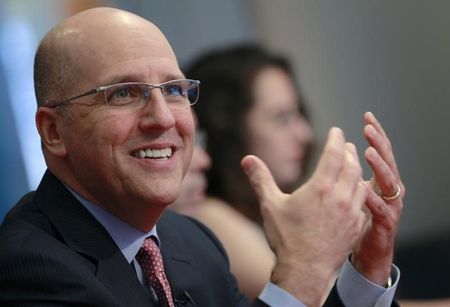By David Gaffen NEW YORK (Reuters) - Longtime Wall Street strategist Richard Bernstein hasn't quite gotten used to investors' reactions when he tells them his favorite asset class for 2015 is the same as in 2014 - high- yield municipal bonds.
"A lot of times when people ask me that question, they're physically disappointed when I tell them," said Bernstein, chief investment officer at Richard Bernstein Advisors LLC, which he founded in 2009. "'That's the best you can come up with?' That's the response."
Nevertheless, Bernstein said on Monday he sees high-yield munis as an undervalued asset class, with yields in some cases rivaling or exceeding the most risky of emerging-market sovereign yields, even in war-torn Iraq, which are seeing flows as well because of investor interest in emerging-market debt.
"I don't care what you think is going on in Michigan and Illinois. It ain't Iraq," he said.
He told a panel of Reuters journalists that the firm's All-Asset Strategy Fund with $455 million in assets has 15 percent to 20 percent of the fund in high-yield muni ETFs. The State Street SPDR Nuveen S&P High-Yield Municipal Bond ETF (K:HYMB), which the fund holds, was up 14.6 percent year to date as of the end of October. He also holds the Market Vectors High Yield Municipal Index ETF (P:HYD), which is up 13.5 percent on the year.
Overall, Bernstein's fund, which he sub-advises for Eaton Vance (N:EV), is up 3.14 percent for the year through October, compared with a 4.34 percent gain for the Morningstar Conservative Allocation Strategy. His strategy has outperformed over a three-year stretch.
Bernstein still expects outperformance in U.S. markets as well, with a focus on domestically oriented companies, specifically in mid-cap and small-cap financials and industrials. He's not a fan of social media stocks, calling them the "silliest thing I've ever seen" because social media is entirely free.
Right now he's less enamored of U.S. multinationals, particularly those with big exposure to Europe, because of what he sees as the European Central Bank's weak response to the poor economic fundamentals. In addition, he's shying away from mid- and small-cap European stocks.

"The ECB is desperately trying to be the worst central bank ever known to mankind," he said.
(Editing by Jeffrey Benkoe)